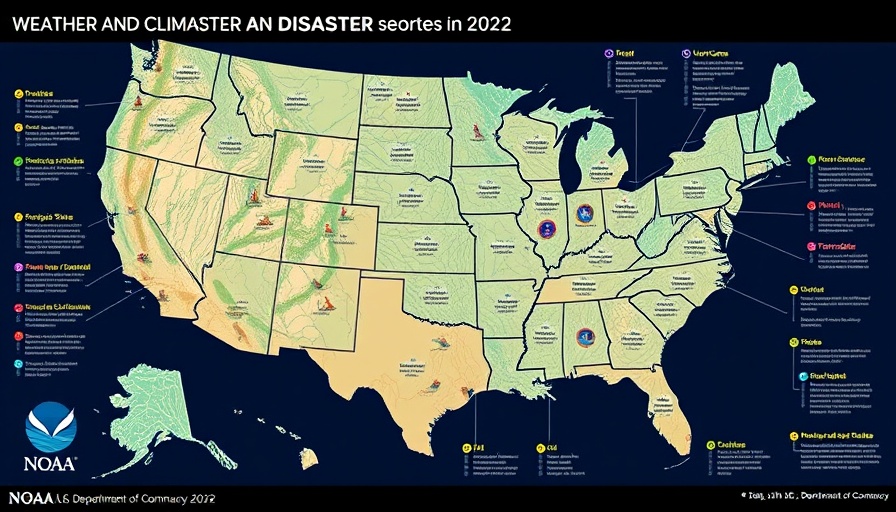
The Impacts of Ending USGCRP Funding on Climate Knowledge
In a move that has alarmed scientists and environmental advocates alike, the Trump administration's decision to end funding for the United States Global Change Research Program (USGCRP) could have profound implications for our understanding of climate change. The USGCRP is responsible for the National Climate Assessment, which has provided vital information on how global warming affects the U.S., impacting a variety of sectors including agriculture, energy, and infrastructure. As one federal staffer anonymously noted, the loss of this program means less access to updated climate risk data, leaving decision-makers in the dark during a critical time.
Why the National Climate Assessment Matters
The National Climate Assessment, established in 1990, offers a comprehensive overview of climate risks and provides crucial insights into future trends. This four-year report is not merely an academic exercise; it's a necessary tool for policymakers, business leaders, and communities striving to adapt to and mitigate the effects of climate change. The assessment informs decisions about resource allocation, environmental protections, and community resilience against extreme weather. Given the increasing frequency of climate-induced disasters, the timing of this funding cut raises significant concerns about the future of informed environmental governance.
Connecting Federal Research to Local Outcomes
The USGCRP serves as a vital hub for collaboration across various federal agencies, ensuring that climate research is comprehensive and actionable. Since its inception, it has functioned as a platform allowing scientists to pool resources and expertise, facilitating innovative solutions to pressing issues. The cancellation of its funding disrupts this essential network, leaving many scientists scrambling for alternative support, as noted by those involved in the program. As a senior climate scientist remarked, without these resources, the scientific foundation for decision-making is significantly hindered, which in turn could affect the safety of communities and infrastructure nationwide.
Dire Predictions from Climate Experts
Climate scientists and advocates are voicing concerns that this funding cut is a direct challenge to both the U.S. government's responsibility towards its citizens and the global community's efforts to tackle climate change. Katharine Hayhoe, a climate specialist, emphasized that the rampant increase in climate disasters—like hurricanes and wildfires—demands a robust assessment process to inform emergency responses and long-term strategies. As the frequency of these devastating events rises, the need for up-to-date research becomes even more urgent. The lack of government support undermines that necessity and risks leaving millions unprepared for the challenges ahead.
Concluding Thoughts: What Can Be Done?
With the Trump administration's recent actions, the future of climate research and awareness in the U.S. hangs in the balance. Advocacy and public pressure may be key to restoring funding and ensuring that vital programs like the USGCRP continue their important work. It's crucial for individuals and communities to stay informed, vocalize their concerns to their representatives, and support organizations dedicated to climate science. By being proactive about climate change, we can all play a role in safeguarding our environment for future generations.
 Add Row
Add Row  Add
Add 



 Add Row
Add Row  Add
Add 

Write A Comment